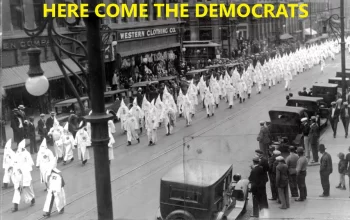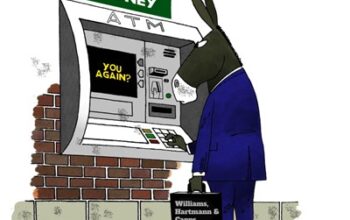Some call it repression. Others call it the cancel culture. No matter what you call it, government and greedy corporations are using their power to stop citizens and movements.
“University-educated individuals, possibly through their liberal arts professors, are more likely to be familiar with such books as “One Dimensional Man” by Herbert Marcuse, “1984” by George Orwell, and “The Trial” by Franz Kafka.
There books deal with aspects of political repression, especially the book, “One Dimensional Man.” Originally, Marcuse, was part of the Frankfurt School in Germany. Later in life, Marcuse became a professor of the University of California, San Diego (La Jolla).
Some, but not all, of the authors mentioned above, have espoused left-wing or liberal views.
This started in the modern day with Marcuse—and some on the right have used his theories and direction. America is in trouble—but so is Canada, Europe and the rest of the world. As a civilization repression seems to be the guiding theory of government.
POLITICAL REPRESSION IS BACK

By Richard Colman, Exclusive to the California Political News and Views 7/28/73 www.capoliticalreview.com
An era of political repression has begun in the United States.
Political repression is not new, but it has become more noticeable since the 2016 election of Donald Trump as president.
Much of Trump’s anger has been directed at political elites, especially those who went to prestigious universities. Trump has also inveighed against immigrants, free-trade advocates, and governments allied with the United States. He has also attacked government bureaucrats (often collectively called the Deep State.)
What explains the difference between the so-called elites and the so-called working class?
University-educated individuals, possibly through their liberal arts professors, are more likely to be familiar with such books as “One Dimensional Man” by Herbert Marcuse, “1984” by George Orwell, and “The Trial” by Franz Kafka.
There books deal with aspects of political repression, especially the book, “One Dimensional Man.” Originally, Marcuse, was part of the Frankfurt School in Germany. Later in life, Marcuse became a professor of the University of California, San Diego (La Jolla).
Some, but not all, of the authors mentioned above, have espoused left-wing or liberal views.
Working-class people, more and more of whom are voting Republican, are unlikely to be familiar with these books.
Today’s university students might not be as familiar with the idea of political repression, an idea that became popular during the Vietnam war.
Today, students hear more about DEI (diversity, equity, and inclusion) and certain feminist writings. Also, many of today’s students often oppose traditional English grammar. The war on pronouns such as “he,” “his,” and “him” is an example.
Another big issue with university-educated individuals is abortion. Recent polling shows that a majority of Americans support pro-choice views. There is reason to believe that many university-educated individuals see the overturning of Roe v. Wade as an example of political repression. Can anyone name a Republican presidential candidate who supports Roe v. Wade, the 1973 U.S. Supreme Court decision making abortion legal during the first two trimesters of pregnancy?
On June 24, 2022, the High Court overturned the Roe decision. The court voted six to three to bury Roe. Three of the six justices in favor or overturning Roe were appointed by Trump. The other three were already members of the court and deemed to be anti-abortion.
Republican candidates for president generally do not address issues of political repression. Many of these Republican candidates have to look for votes in Bible Belt states and certain Rocky Mountain-area states like Montana, Idaho, and South Dakota. The Montana state legislature recently passed a bill banning Tik-Tok. The Bible Belt and Rocky Mountain-area states tend to favor authoritarian government.
America’s working class is angry over a perceived decline in the nation’s standard of living, illegal immigration from Latin America, crime, and so-called special treatment of certain ethnic minorities.
Also, there is anger over the nation’s public-school system, which, according to recent measurements, is not producing literate and numerate students. This anger is not necessarily confined only to working class individuals.
Both major political parties are engaging in repression.
The Republicans want to demolish the Deep State, end America’s traditional alliances with European and Asian nations, and punish individuals with whom most Republicans disagree.
The Democrats want to force society to pay higher taxes, accept more government control over transportation and the environment, and accept more social diversity. If there were a nation-wide referendum, how many Americans would support having all-electric vehicles by 2025? And how many Americans would support giving preferences in university admissions and in hiring to certain ethnic groups?
Two leading 2024 Republican presidential candidates, Donald Trump and Ron DeSantis (the governor of Florida) are in favor of using government power to achieve their goals.
In recent days, two mainstream media outlets, The New York Times and The Economist, have carried an article and an opinion piece warning what Trump might do if re-elected as president in 2024.
The Times (July 17, 2023) reported in a news article that, “Donald Trump and his allies are planning a sweeping expansion of presidential power over the machinery of government . . .”
In an opinion piece on Trump, The Economist, said, “Thousand-page documents set out ideas that were once outlandish in Republican circles but have now become orthodox: finishing the border wall, raising tariffs on allies and competitors, making unfunded tax cuts permanent and ending automatic citizenship for anyone born in the United States.”
To date, the Times and The Economist have not focused on Ron DeSantis or Joe Biden, the incumbent Democratic president and a candidate for a second term in 2024.
Instead of seeking a freer society, Republicans and Democrats are seeking more political control over individuals.
Is such political repression what America’s founders in 1776 envisioned for their new nation?



